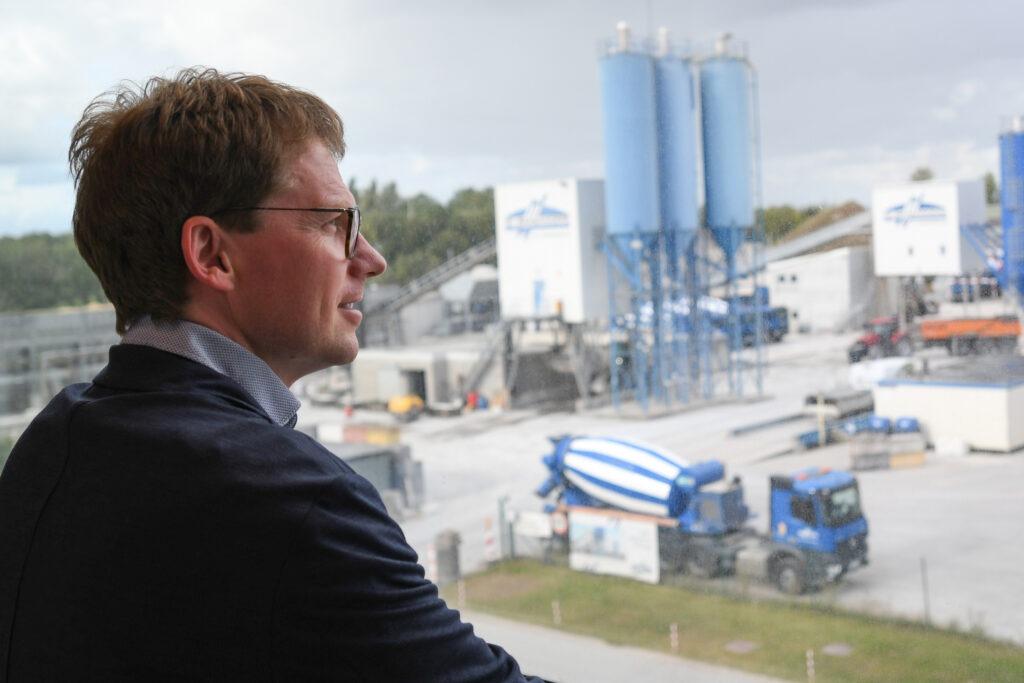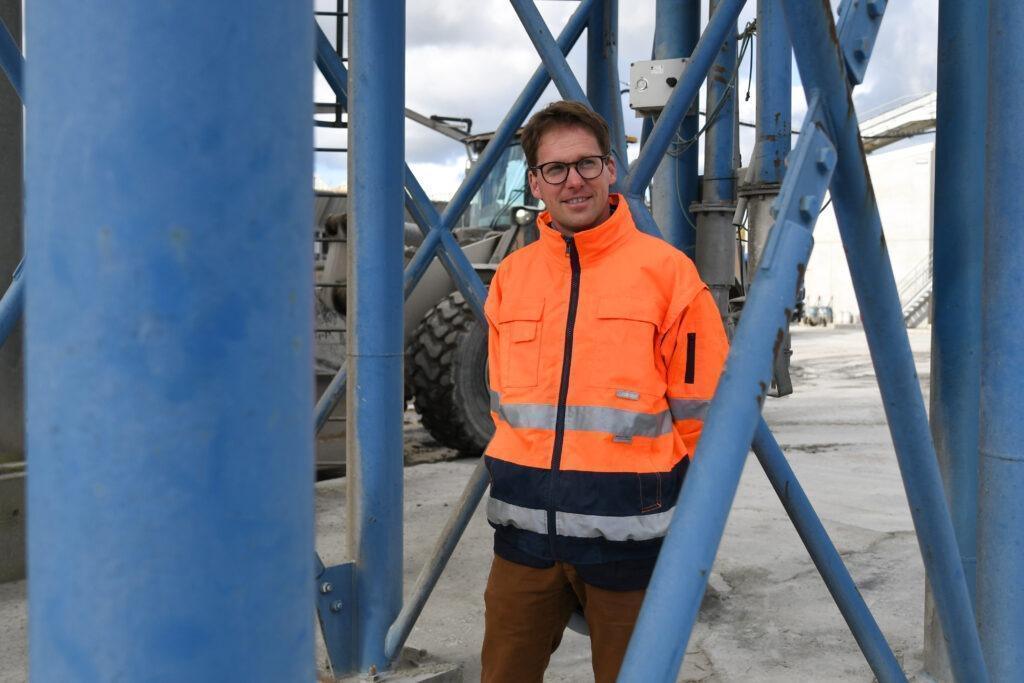Converting waste streams into new and 100% recyclable concrete. De Brabandere realizes this in Veurne with a brand new installation. A substantial investment in the future. The sense of innovation and the sustainable vision were given a boost with strategic transformation support from VLAIO. But work has been going on for much longer. "Ten years of investments and R&D have led to this turning point," says Managing Director Pieter De Brabandere.
The future is circular and concrete is a perfect building block in it. That belief drives Pieter De Brabandere ever since he can remember in his professional ambitions. Not only within his own company, but also as chairman of the non-profit organization Groen Beton Vert and as Voka regional chairman Veurne. Years of paving the way and taking steps that others sometimes labeled as wild dreams have now reached their climax: family business Group De Brabandere has succeeded in upgrading impure sand to high-quality sand. With this residual flow, which would otherwise play an insignificant role, the construction company now makes Eco-concrete.

The Belgian coast as inspiration
De Brabandere is based in Veurne. That location plays an important role in the pioneering work that is now on the table. Pieter De Brabandere explains: "On the zone between De Panne and Nieuwpoort, during road and construction works, sand always comes up. This sand has a beautiful grain but is impure for 15%. This made it unusable for high-quality applications. So it all started with the purification of this sand, although of course many steps and research followed to arrive at concrete of a high quality and wide application possibilities. Produced in the most sustainable way possible, of course."
It took a lot of investment and research to achieve this groundbreaking result. A washing and sieving installation was installed to purify the sand from residual flows. To experiment with different binders, De Brabandere also placed 4 extra silos. To valorize the raw materials from the screening plant into ecological concrete, a second concrete plant was placed.
And then there is the impressive new building, which includes a spacious lab and a large, multifunctional demonstration and meeting room. For his innovation, Pieter De Brabandere was able to count on a subsidy from VLAIO, and on the expert guidance of Titeca for the application and preparation of the dossier. "This grant covered some 8% of the total investment cost. Just the push we needed."

A solid thinking exercise
In order to build a solid subsidy file, Jos Leenknegt - subsidy expert at Titeca - and Saskia Claeys - former CFO of Group De Brabandere - thought actively about Pieter's plans and dreams. And that has its advantages. "To get the subsidy, you have to write a thorough business plan; you have to make your gut feeling concrete. With Jos as a sounding board, we did a lot of the work in advance. We knew exactly where we wanted to go and how to get there. Our technical expertise and Titeca's business and financial insight turned out to be a golden combination. And without Jos, we might never have applied for this subsidy either. He knew what we were doing and suggested we submit a dossier. Jos also ensured that the transfer of this file to general manager Emilie Thys went smoothly."
With this strategic transformation support, the new facilities and the resulting ecological concrete, Group De Brabandere is thus taking an important next step in its circular vision. The impact will also be felt at other levels in the sector. "Caroline Ledang, director of BE-CERT, already came to take a look and is convinced of the added value. The general BENOR-concrete can also become a lot more sustainable. Thus, we can reduce the ecological footprint of our sector by no less than 25%. The image of concrete could use a boost, but it really is the circular building material par excellence. Especially now that we can use residual streams for its production. With as little extraction of raw materials as possible, we sustainably make a fully recyclable product: it can't get any better, can it?"




